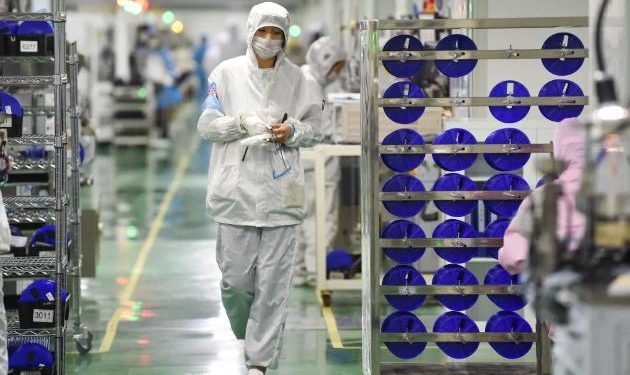- More Taiwanese chip companies are expanding their operations in Japan, contributing to Tokyo’s efforts to rebuild its country’s semiconductor industry
- The move by Taiwanese firms to Japan highlights the shifting alliances and priorities in the global chip industry
- Due to a weak yen, more Taiwanese chip sector firms are also keen to increase their presence or establish themselves in Japan
TAIPEI, Taiwan: More Taiwanese chip companies are expanding their operations in Japan, contributing to Tokyo’s efforts to rebuild its country’s semiconductor industry.
After trade tensions with the U.S. and competition from South Korean and Taiwanese rivals, Japan, which still boasts leading semiconductor material and equipment makers, has seen its share of the global chip manufacturing market shrink to 10 percent from around 50 percent in the 1980s.
As Washington aims to limit China’s progress in cutting-edge semiconductors and strengthen the partnerships between its allies, the move by Taiwanese firms to Japan highlights the shifting alliances and priorities in the global chip industry.
In 2022, fabless chipmaker Alchip Technologies, which specializes in customized chips known as application-specific integrated chips (ASICs), moved most of its research and development engineers from China to Japan, as well as many roles.
The company said it is hiring in Japan, North America, and Taiwan.
Hiroyuki Furuzono, general manager of Alchip Japan, said, “We are expecting Japan semiconductor market growth, we are continuously capitalizing on Japan ASIC opportunities and already engaging in several good projects.”
Over the past two years, at least nine Taiwanese chip firms have established or expanded operations in Japan, including chip design company eMemory Technology, which opened an office two years ago in Yokohama.
The company has 11 employees after hiring from Japanese conglomerates that once dominated the industry.
In an interview with Reuters, eMemory President Michael Ho said, “After we built the office there, we are receiving more frequent communication with the customers and they are more willing to talk in Japanese with our local people, so we see business is booming.”
Due to a weak yen, more Taiwanese chip sector firms are also keen to increase their presence or establish themselves in Japan.






